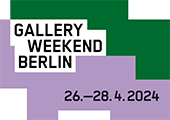Inna Levinson & Walter Stöhrer. WHO AM I?
26 April to 8 June 2024 ⟶ Galerie
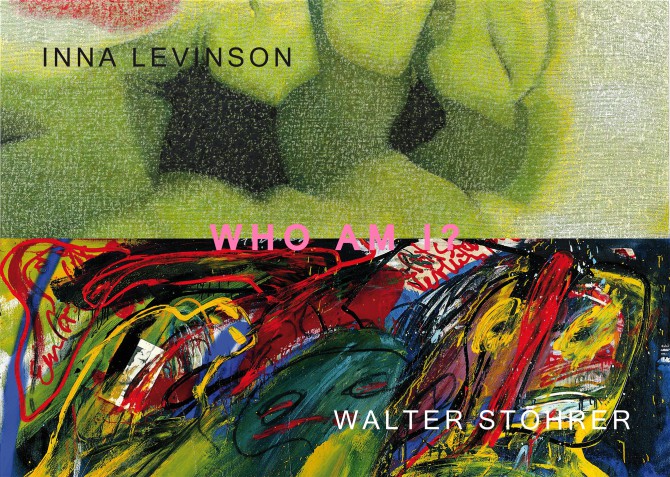
Installation View. Courtesy Galerie Georg Nothelfer. Photo: Katrin Rother
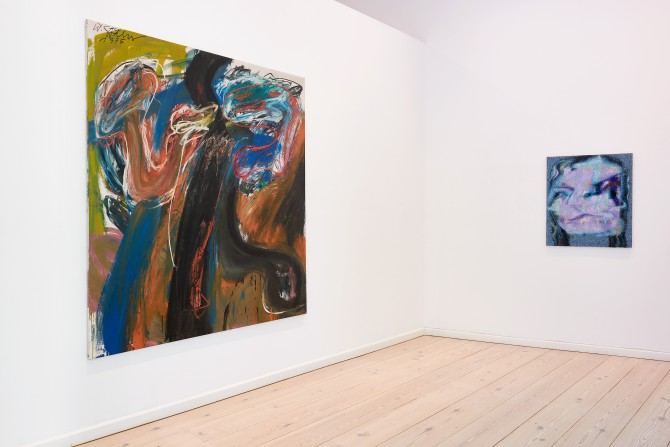
Installation View. Courtesy Galerie Georg Nothelfer. Photo: Katrin Rother
Inna Levinson, Double-Faced, 2024, Oil on burlap on canvas, 90 x 75 cm. Photo: dotgain.info (SOLD)
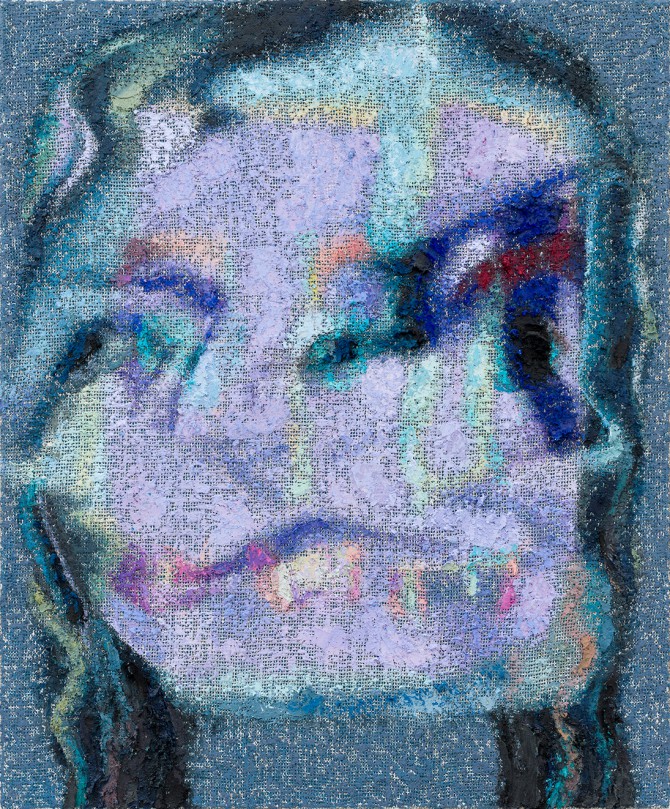
Inna Levinson, Double-Faced, 2024, Oil on burlap on canvas, 90 x 75 cm. Photo: dotgain.info (SOLD)
Walter Stöhrer, Untitled, 1973, Mixed media on canvas, 200 x 175 cm
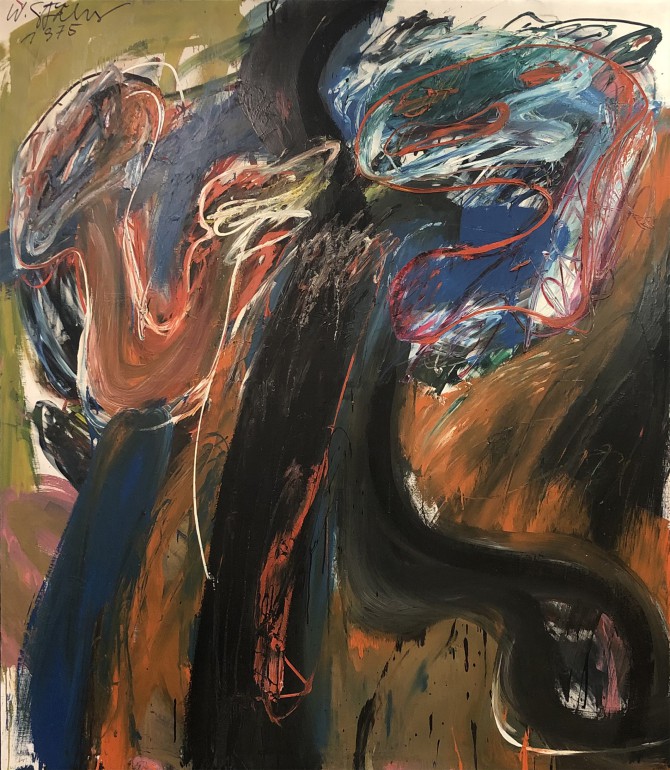
Walter Stöhrer, Untitled, 1973, Mixed media on canvas, 200 x 175 cm
Installation View. Courtesy Galerie Georg Nothelfer. Photo: Katrin Rother
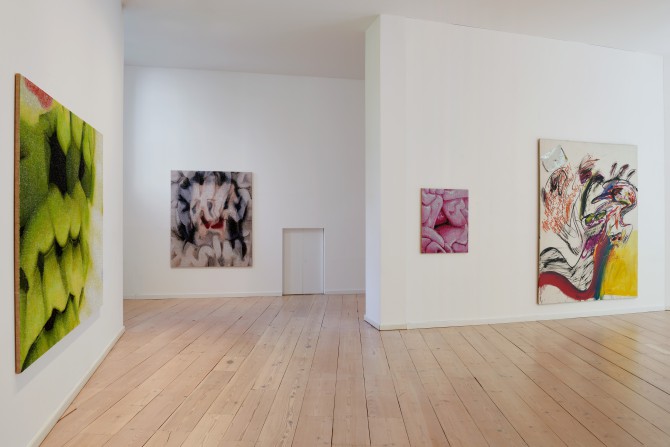
Installation View. Courtesy Galerie Georg Nothelfer. Photo: Katrin Rother
Walter Stöhrer, Mein Leben auf Widerruf, in den sehenden Händen anderer Leute gehalten deren und meine Unmöglichkeiten Frank O´Hara, 1983, Mixed media on canvas, 250 x 200 cm. Photo: Katrin Rother
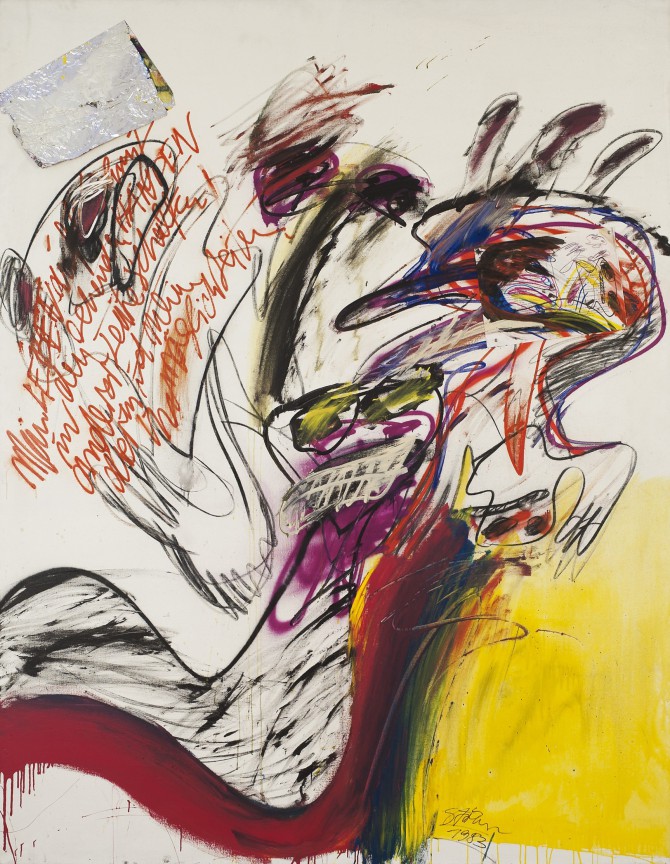
Walter Stöhrer, Mein Leben auf Widerruf, in den sehenden Händen anderer Leute gehalten deren und meine Unmöglichkeiten Frank O´Hara, 1983, Mixed media on canvas, 250 x 200 cm. Photo: Katrin Rother
Inna Levinson, BP//90/75/MA/W/, 2024, Oil on burlap on canvas, 90 x 75 cm. Photo: dotgain.info
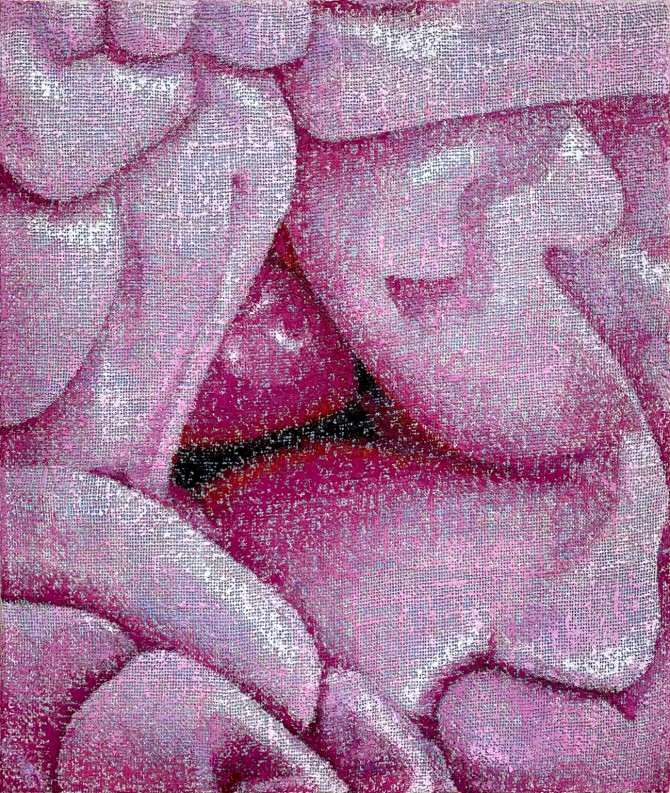
Inna Levinson, BP//90/75/MA/W/, 2024, Oil on burlap on canvas, 90 x 75 cm. Photo: dotgain.info
Inna Levinson, Brain Power – Incredible Power of Thoughts BP//190/240/Y/2024, 2024, Oil on burlap on canvas, 180 x 240 cm. Photo: dotgain.info
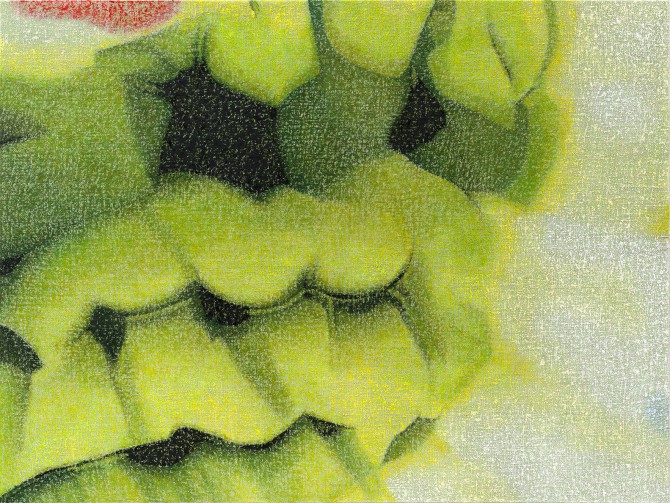
Inna Levinson, Brain Power – Incredible Power of Thoughts BP//190/240/Y/2024, 2024, Oil on burlap on canvas, 180 x 240 cm. Photo: dotgain.info
Installation View. Courtesy Galerie Georg Nothelfer. Photo: Katrin Rother
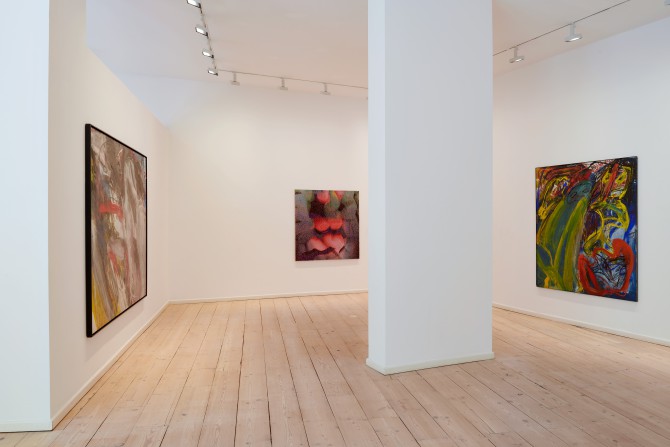
Installation View. Courtesy Galerie Georg Nothelfer. Photo: Katrin Rother
Walter Stöhrer, Yellow Figures, 1976, Mixed media on canvas, 200 x 180 cm (SOLD)
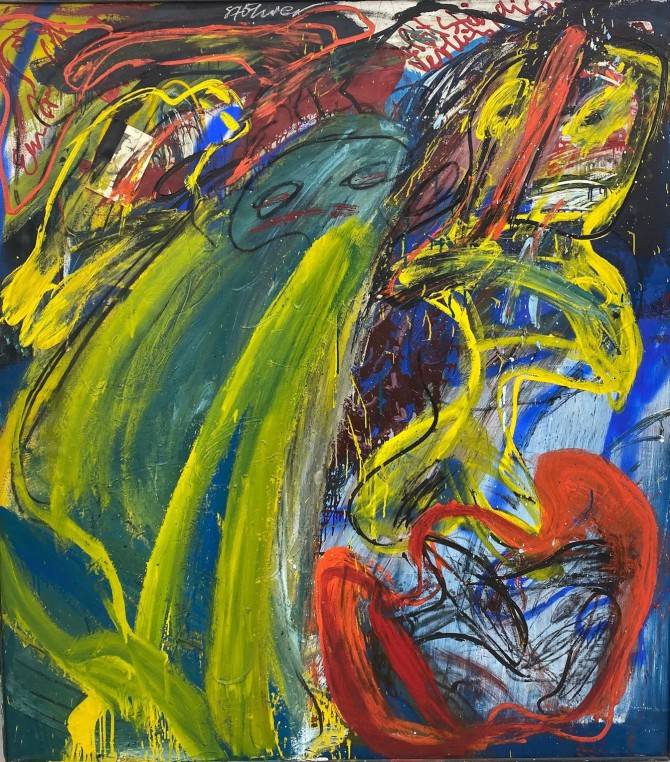
Walter Stöhrer, Yellow Figures, 1976, Mixed media on canvas, 200 x 180 cm (SOLD)
Inna Levinson, Brain Power – Incredible Power of Thoughts BP//150/150/GR/R/2021, 2024, Oil on burlap on canvas, 150 x 150 cm. Photo: A. Lang (SOLD)
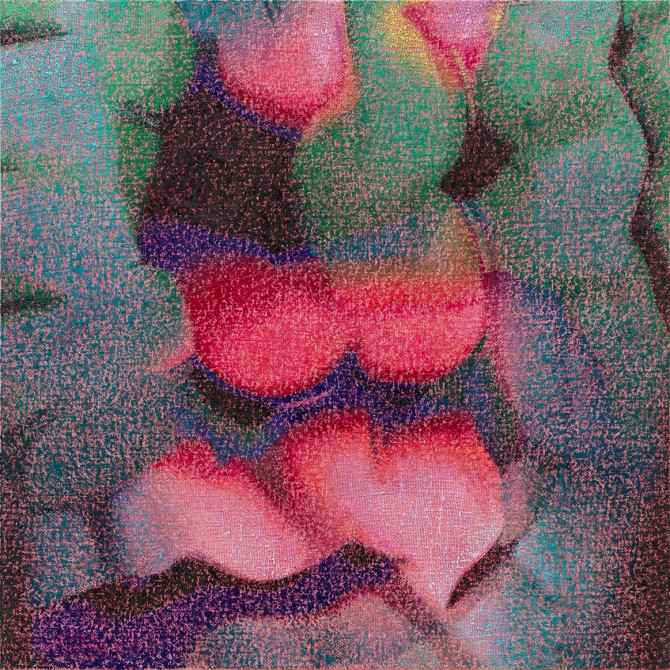
Inna Levinson, Brain Power – Incredible Power of Thoughts BP//150/150/GR/R/2021, 2024, Oil on burlap on canvas, 150 x 150 cm. Photo: A. Lang (SOLD)
Installation View. Courtesy Galerie Georg Nothelfer. Photo: Katrin Rother
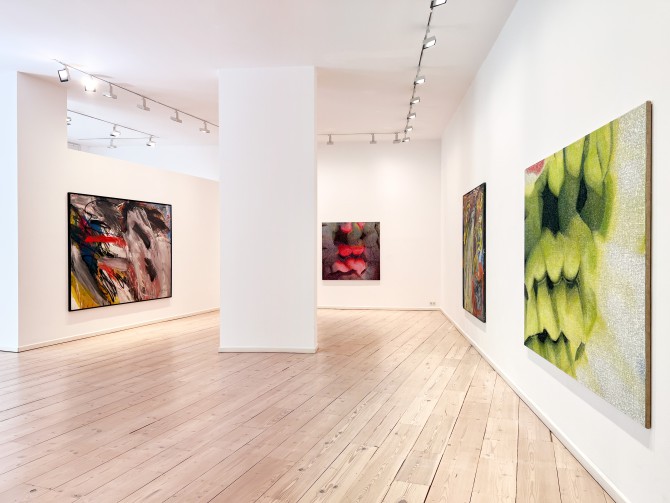
Installation View. Courtesy Galerie Georg Nothelfer. Photo: Katrin Rother
Walter Stöhrer, Black and go I, 1981, Mixed media on canvas, 200 x 260 cm
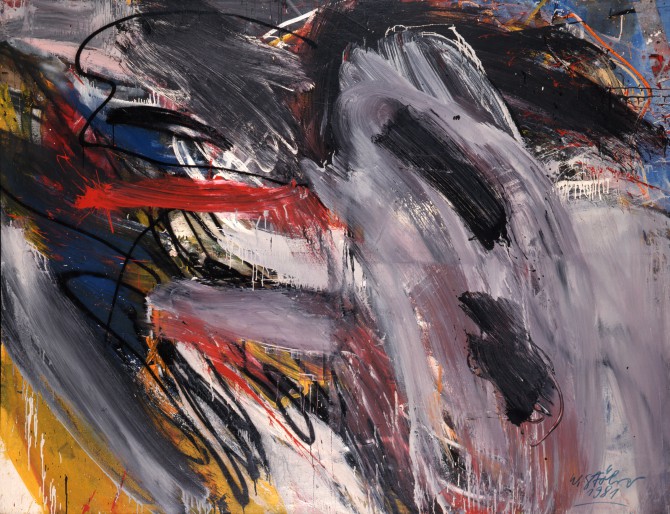
Walter Stöhrer, Black and go I, 1981, Mixed media on canvas, 200 x 260 cm
Installation View. Courtesy Galerie Georg Nothelfer. Photo: Katrin Rother
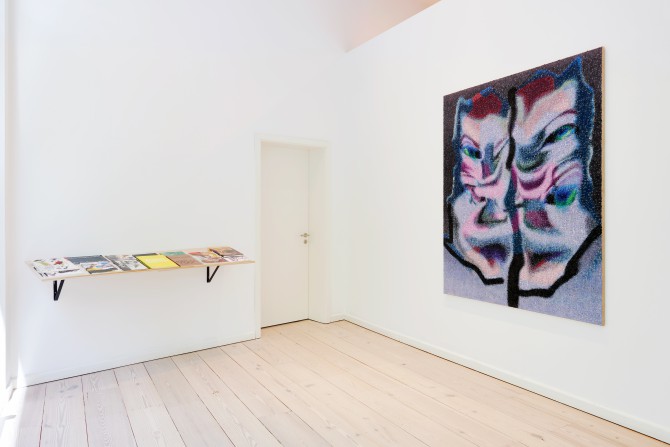
Installation View. Courtesy Galerie Georg Nothelfer. Photo: Katrin Rother
Inna Levinson, DF//180/150/CAT/W/BL/P/2023, 2023, Oil on burlap on canvas, 180 x 150 cm. Photo: dotgain.info
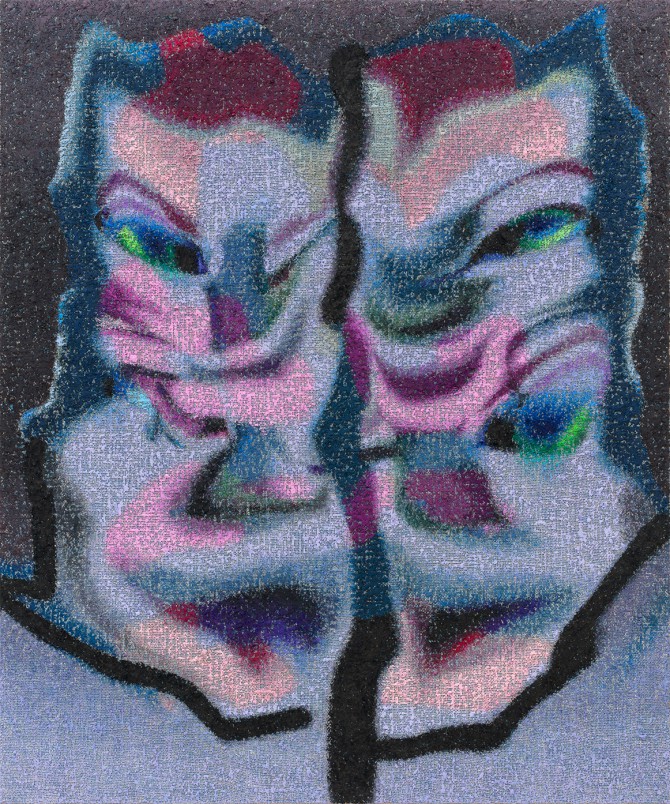
Inna Levinson, DF//180/150/CAT/W/BL/P/2023, 2023, Oil on burlap on canvas, 180 x 150 cm. Photo: dotgain.info
Installation View. Courtesy Galerie Georg Nothelfer. Photo: Katrin Rother
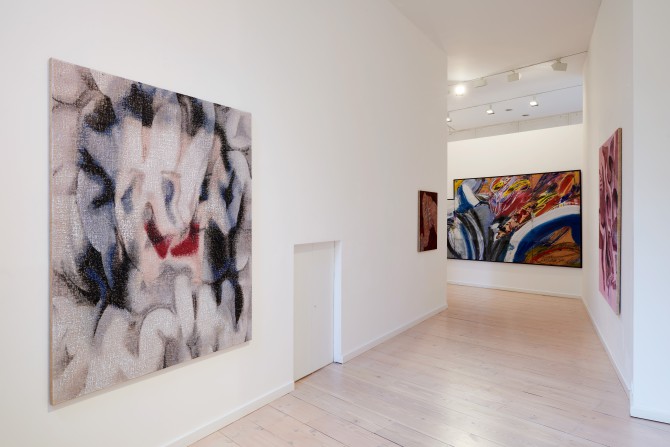
Installation View. Courtesy Galerie Georg Nothelfer. Photo: Katrin Rother
Inna Levinson, PI/LI//180/150/HA/MA/BR/2020 (Rose Period), 2020, Oil on burlap on canvas, 180 x 150 cm. Photo: dotgain.info
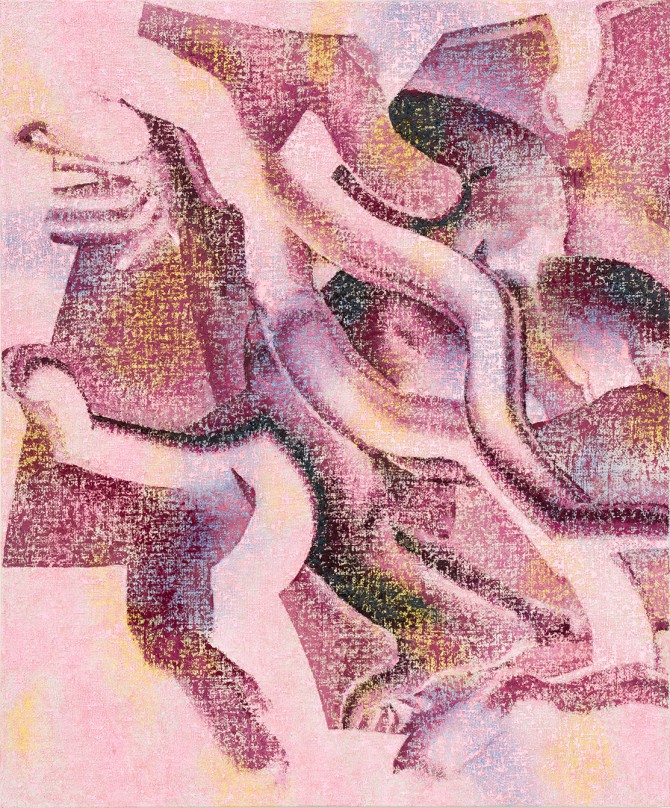
Inna Levinson, PI/LI//180/150/HA/MA/BR/2020 (Rose Period), 2020, Oil on burlap on canvas, 180 x 150 cm. Photo: dotgain.info
Inna Levinson, SD//90/75/MA/OR/2019, 2019, Oil on burlap on canvas, 90 x 75 cm. Photo: dotgain.info
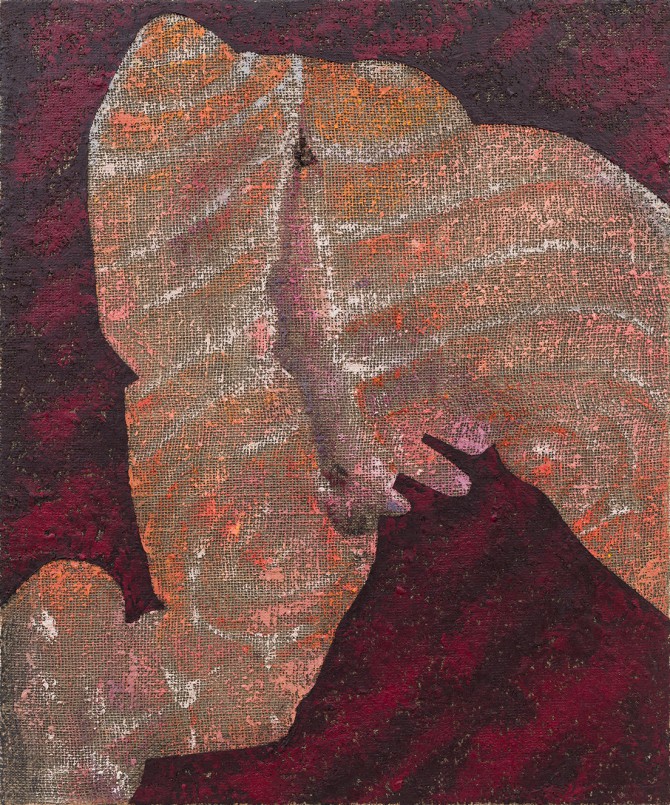
Inna Levinson, SD//90/75/MA/OR/2019, 2019, Oil on burlap on canvas, 90 x 75 cm. Photo: dotgain.info
Installation View. Courtesy Galerie Georg Nothelfer. Photo: Katrin Rother
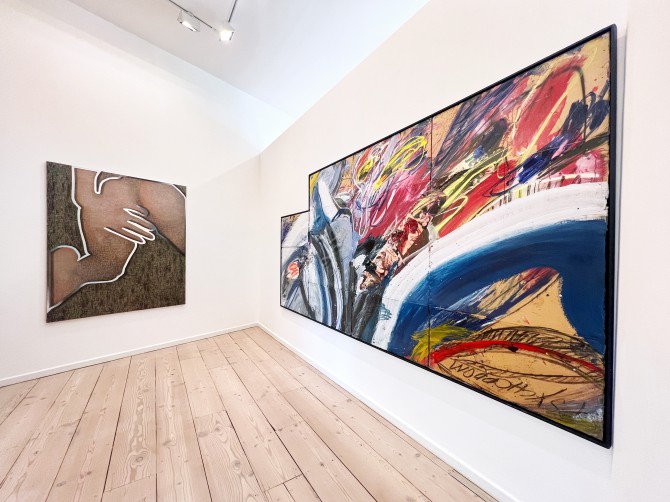
Installation View. Courtesy Galerie Georg Nothelfer. Photo: Katrin Rother
Walter Stöhrer, Psychodrom, 1980, Mixed media on packaging cardboard,
182 x 360 cm
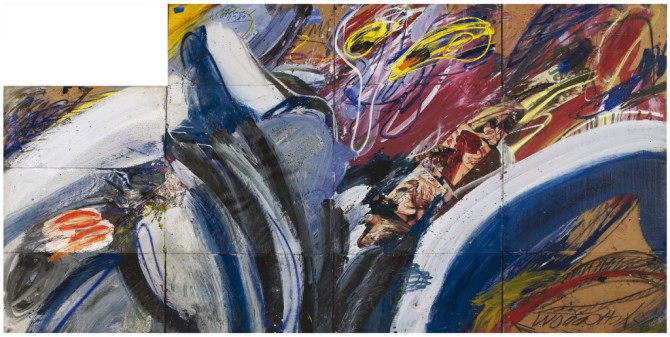
Walter Stöhrer, Psychodrom, 1980, Mixed media on packaging cardboard,
182 x 360 cm
Inna Levinson, CO//180/150/LI/G/P/SI/2019, 2019, Oil on burlap on canvas, 180 x 150 cm. Photo: dotgain.info
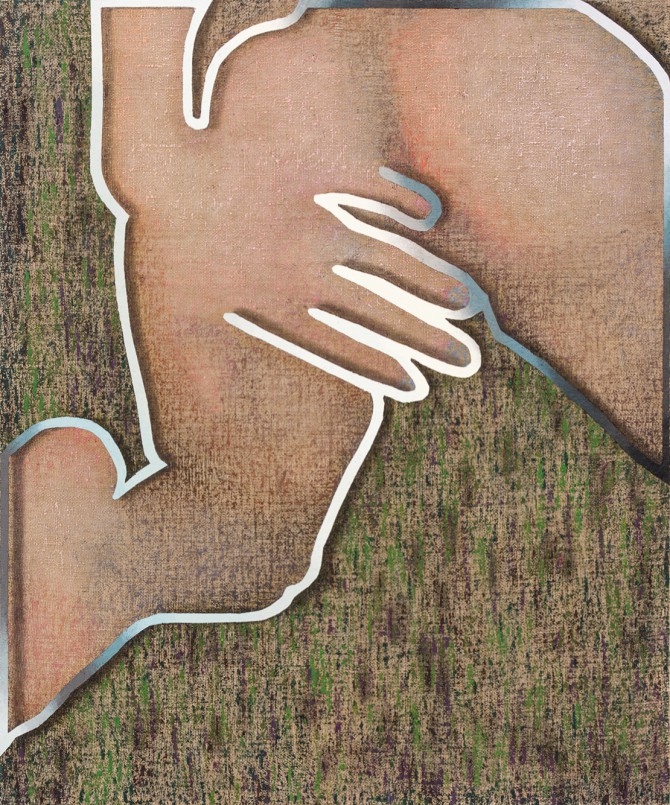
Inna Levinson, CO//180/150/LI/G/P/SI/2019, 2019, Oil on burlap on canvas, 180 x 150 cm. Photo: dotgain.info
Inna Levinson, Brain Power - Incredible Power Of Thoughts
BP/DF//180/150/W/B/PI/2023, 2023, Oil on burlap on canvas, 180x150 cm. Photo: dotgain.info
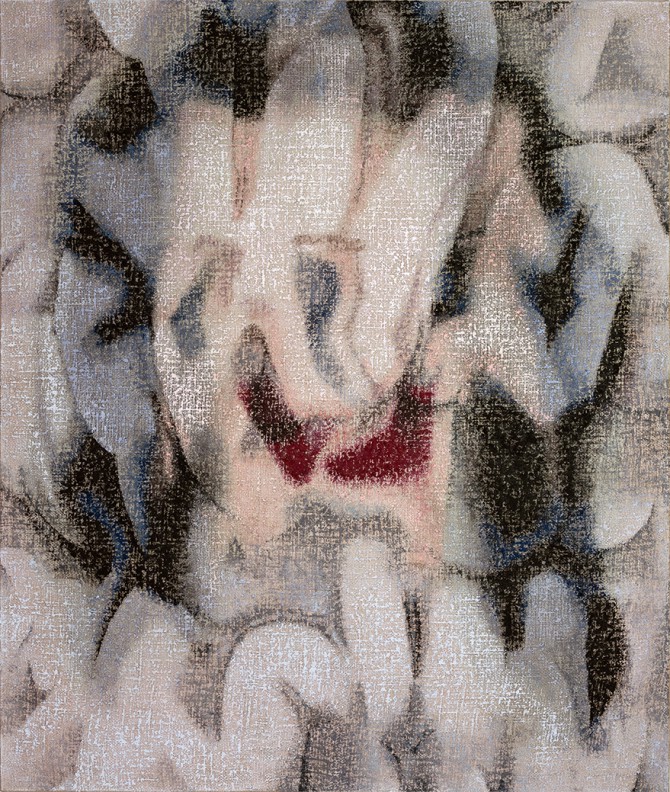
Inna Levinson, Brain Power - Incredible Power Of Thoughts
BP/DF//180/150/W/B/PI/2023, 2023, Oil on burlap on canvas, 180x150 cm. Photo: dotgain.info
Walter Stöhrer, Untitled, 1981, Gouache on paper, 70 x 100 cm
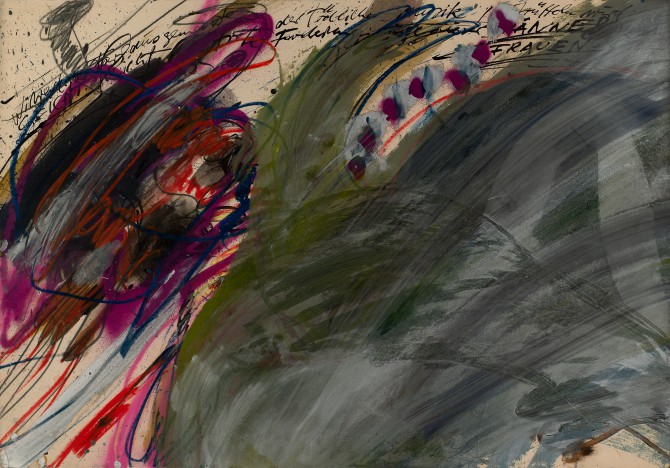
Walter Stöhrer, Untitled, 1981, Gouache on paper, 70 x 100 cm
Walter Stöhrer, Untitled, 1965, Ink on paper, 37,5 x 29 cm
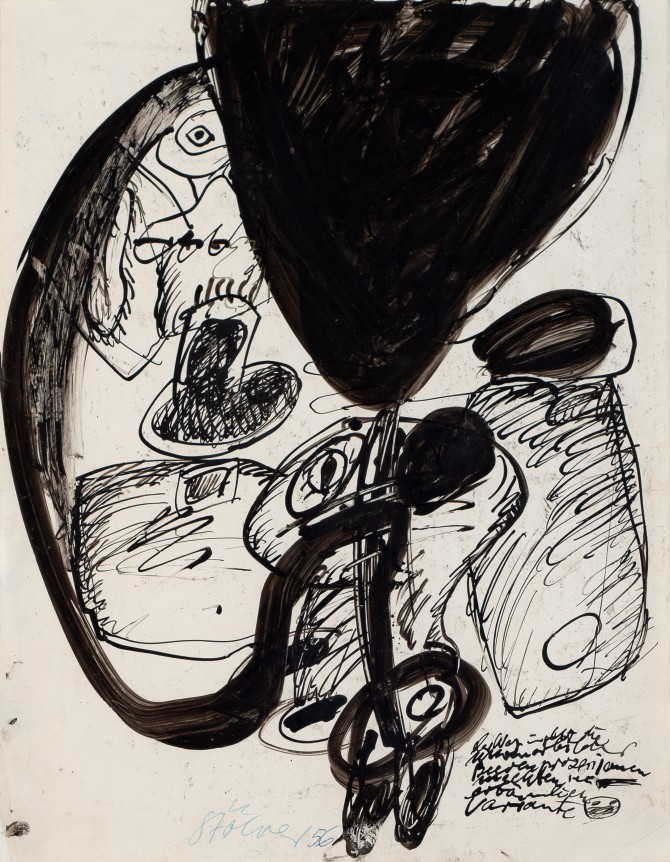
Walter Stöhrer, Untitled, 1965, Ink on paper, 37,5 x 29 cm
Walter Stöhrer, Untitled, 1977, Ink on paper, 29 x 41,5 cm
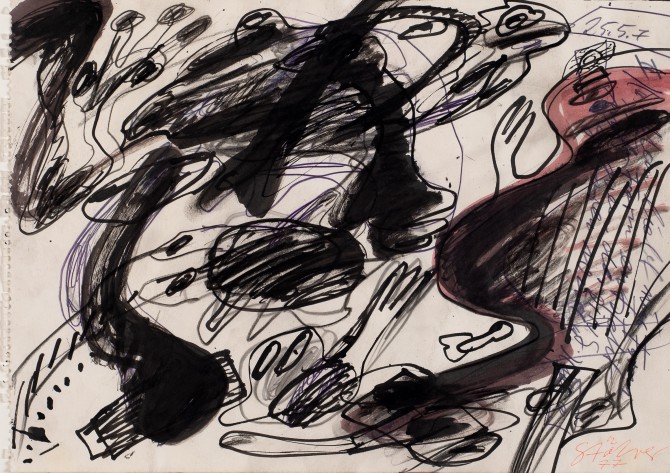
Walter Stöhrer, Untitled, 1977, Ink on paper, 29 x 41,5 cm
Inna Levinson, DF//50/45//G/PI/BL/2023, 2023, Oil on burlap on canvas, 50 x 45 cm
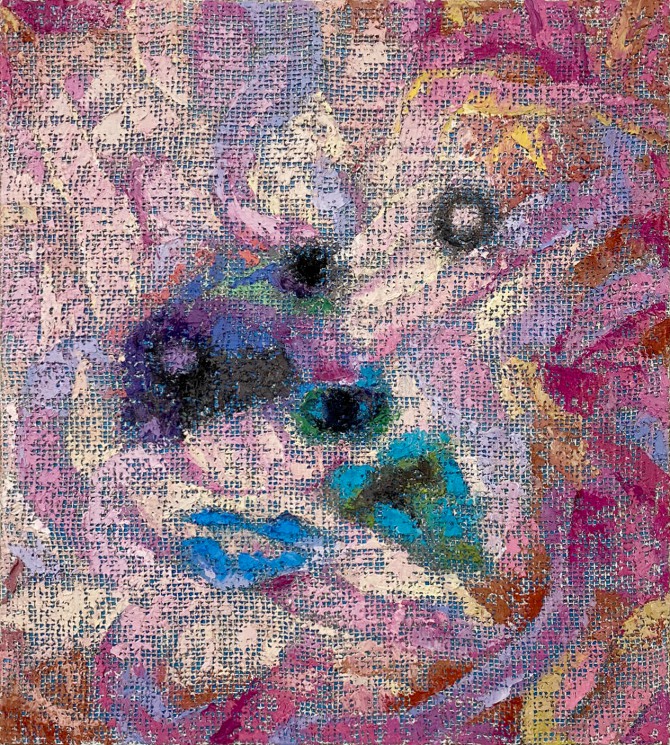
Inna Levinson, DF//50/45//G/PI/BL/2023, 2023, Oil on burlap on canvas, 50 x 45 cm
Inna Levinson, BP//50/43/G/2023, 2023, Oil on burlap on canvas, 50 x 43 cm
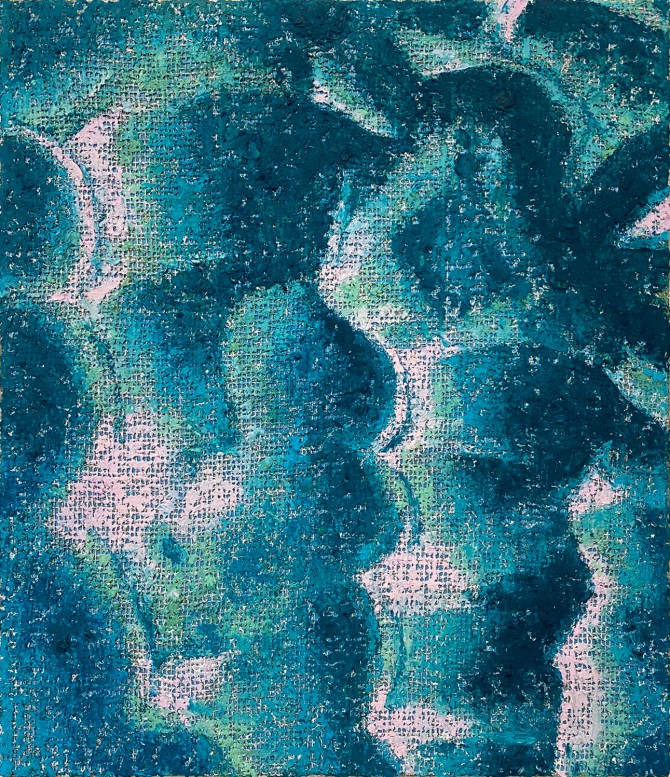
Inna Levinson, BP//50/43/G/2023, 2023, Oil on burlap on canvas, 50 x 43 cm
Walter Stöhrer, Magara, 1977, Mixed media on paper, 29,7 x 42 cm
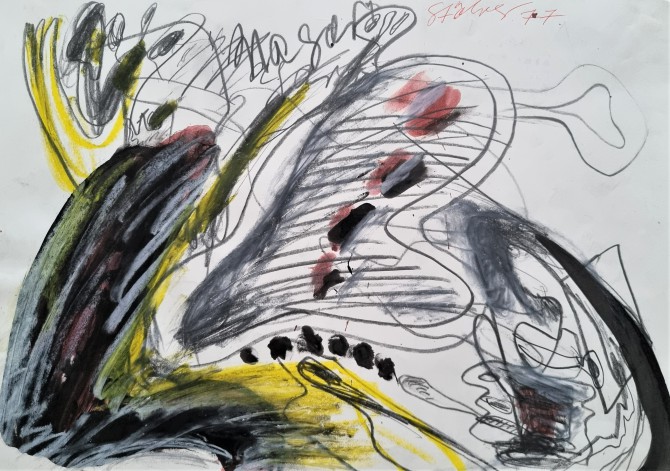
Walter Stöhrer, Magara, 1977, Mixed media on paper, 29,7 x 42 cm
Inna Levinson, UM//50/45//G/PI/BL/2023, 2023, Oil on burlap on canvas, 68 x 60 cm
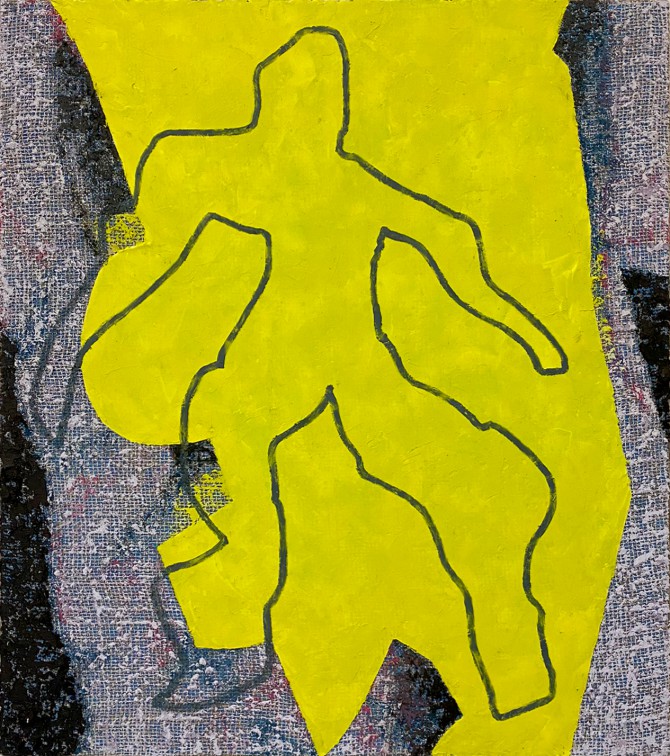
Inna Levinson, UM//50/45//G/PI/BL/2023, 2023, Oil on burlap on canvas, 68 x 60 cm
Installation View. Courtesy Galerie Georg Nothelfer. Photo: Katrin Rother
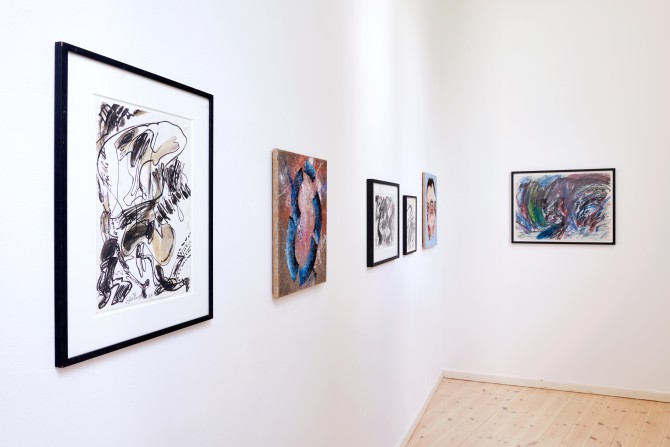
Installation View. Courtesy Galerie Georg Nothelfer. Photo: Katrin Rother
Walter Stöhrer, Untitled, Mixed media on millimeter paper, 56 x 74 cm
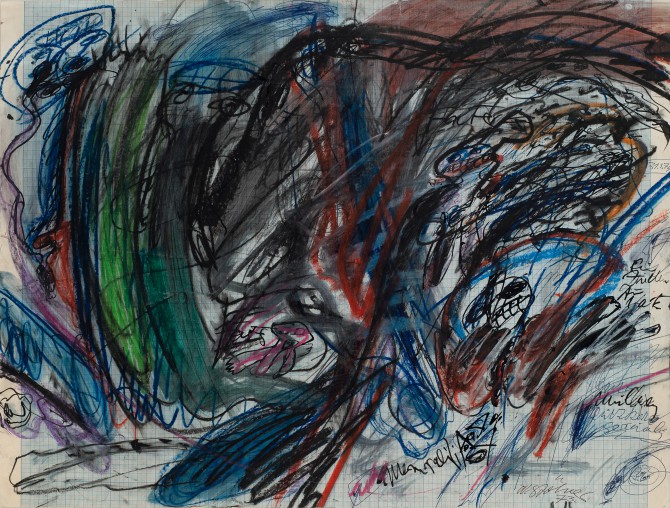
Walter Stöhrer, Untitled, Mixed media on millimeter paper, 56 x 74 cm
Inna Levinson, DF//60/50/BL/BR/2024, 2024, Oil on burlap on canvas, 60 x 50 cm
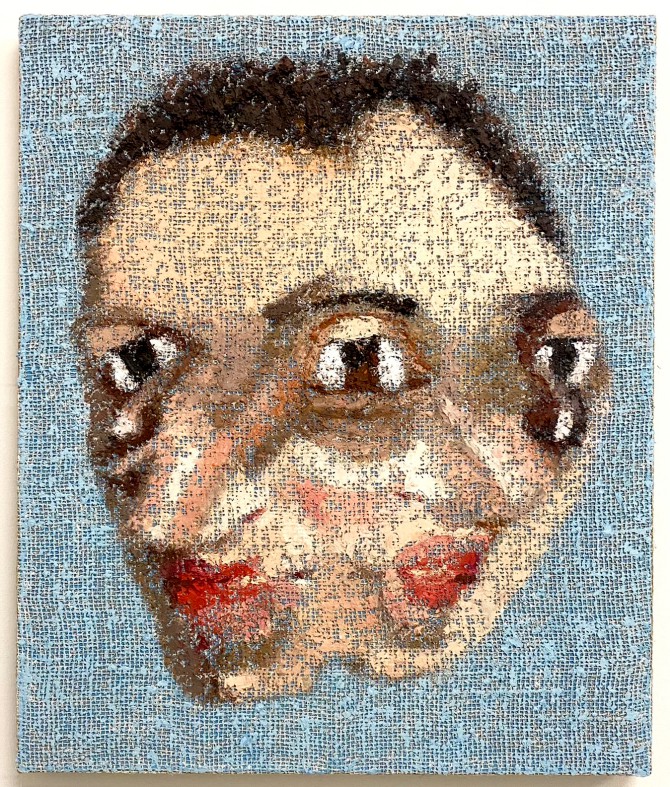
Inna Levinson, DF//60/50/BL/BR/2024, 2024, Oil on burlap on canvas, 60 x 50 cm
Inna Levinson, CC//50/43/BL/2018, 2018, Oil on burlap on canvas, 50 x 43 cm
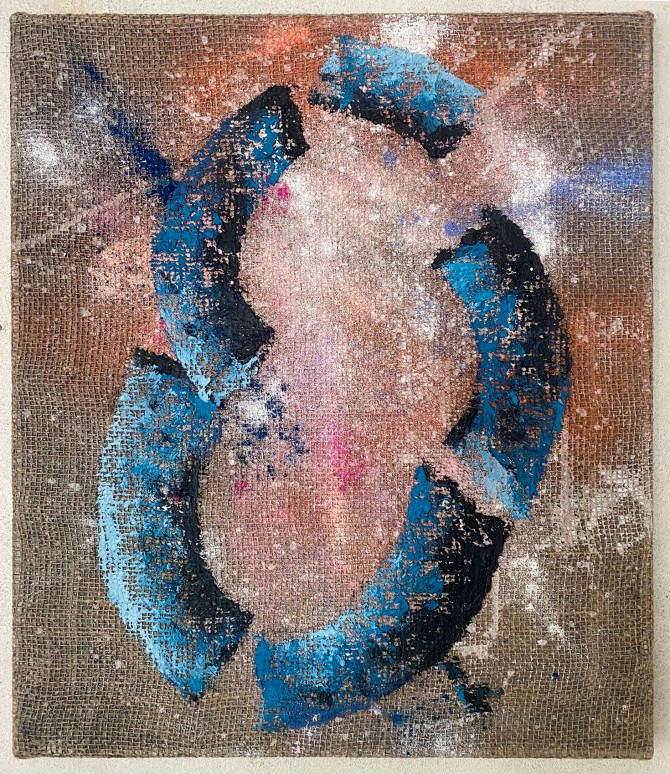
Inna Levinson, CC//50/43/BL/2018, 2018, Oil on burlap on canvas, 50 x 43 cm
Walter Stöhrer, Untitled, 1962, Ink on paper, 34,5 x 26 cm
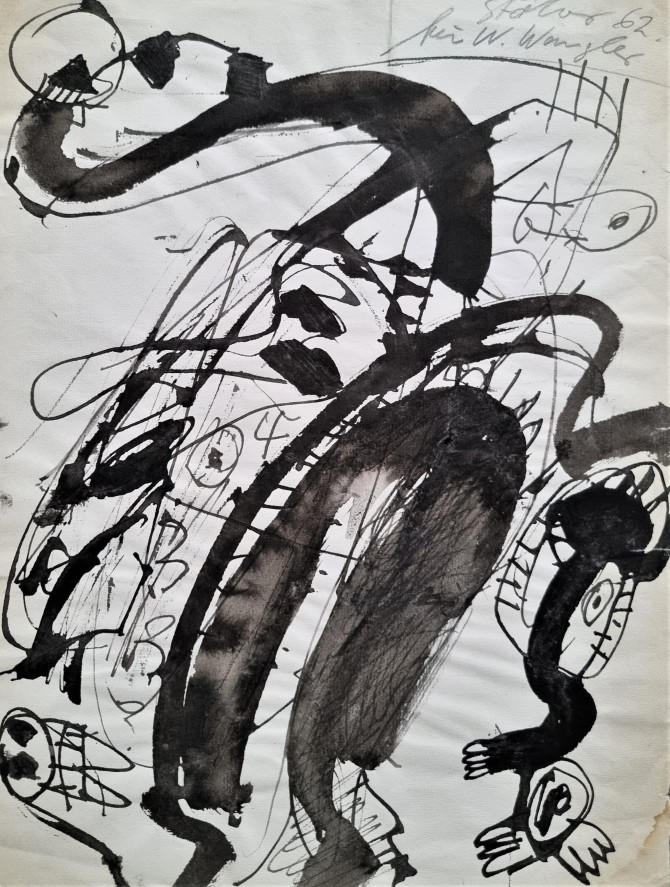
Walter Stöhrer, Untitled, 1962, Ink on paper, 34,5 x 26 cm
Inna Levinson, BP/E//45/45/PI/PL/G/2024, 2024, Oil on burlap on canvas, 45 x 45 cm
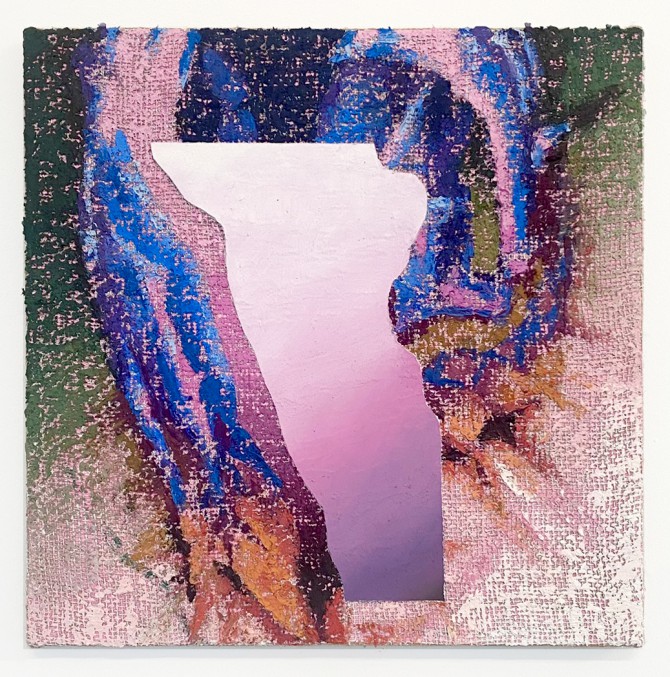
Inna Levinson, BP/E//45/45/PI/PL/G/2024, 2024, Oil on burlap on canvas, 45 x 45 cm
Walter Stöhrer, Untitled, 1977, Ink on cardboard, 43 x 30,5 cm
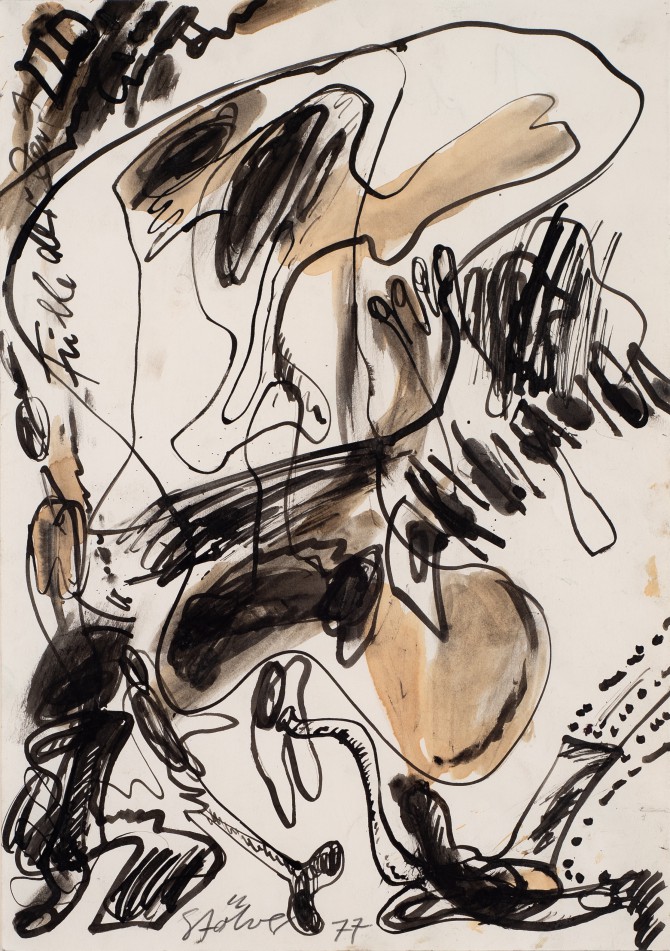
Walter Stöhrer, Untitled, 1977, Ink on cardboard, 43 x 30,5 cm
Inna Levinson, BP//45/45/G/2024, 2024, Oil on burlap on canvas, 45 x 45 cm (SOLD)

Inna Levinson, BP//45/45/G/2024, 2024, Oil on burlap on canvas, 45 x 45 cm (SOLD)
Inna Levinson, BP//30/25/PI/2024, 2024, Oil on burlap on canvas 30 x 25 cm
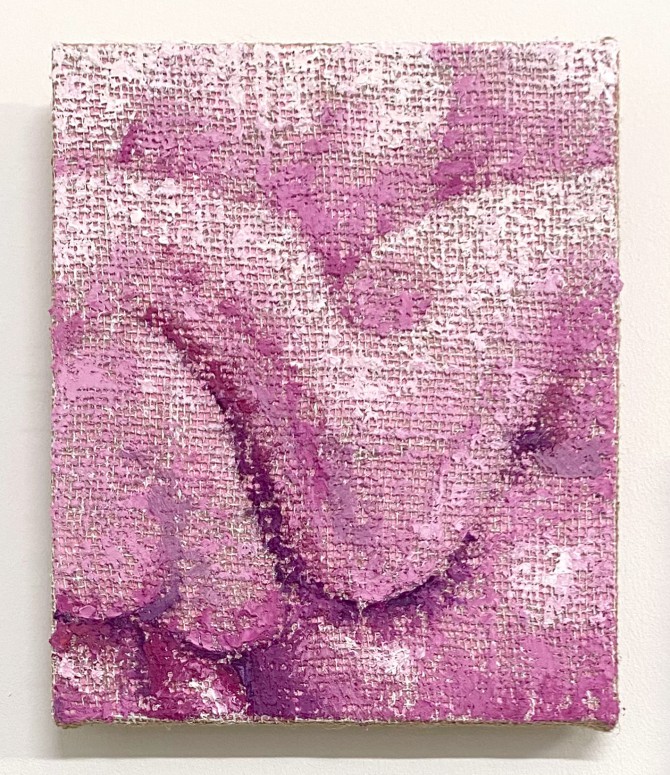
Inna Levinson, BP//30/25/PI/2024, 2024, Oil on burlap on canvas 30 x 25 cm
Guided Tour of the exhibition
Sat, May 18th, 2 pm
Inna Levinson will be present
Galerie Georg Nothelfer is pleased to present an exhibition with young Berlin artist Inna Levinson (*1984 in Lwiw / UdSSR, now Ukraine) and Walter Stöhrer (*1937 in Stuttgart/Germany, Ɨ 2000 in Taarstedt/Germany), who is a representative of gestural and scriptural painting, on the theme of "Identity".
"The painting is a skin that I shed," says Walter Stöhrer. This molting is associated with a process of constant renewal, while the changing self exists in a bodily continuum. In this way, the artist remains true to himself in perpetual renewal. Painting by painting. Stöhrer, the great individualist, never cared about group formations, artistic factionalism and aesthetic categories. From the 1960s onwards, the painter paved his own way in the art world with growing recognition, giving his practice a dazzling name that was intended as a counter-concept to the "Critical Realism" of his fellow painters: "Intrapsychic Realism". Figurative style and abstraction were thus compatible and not contradictory for him. His gestural painting was an expression of great painterly power and at the same time imbued with literature. He valued ancient philosophy as much as the writings of the French surrealists. This heterogeneity in his pictorial design allowed him to integrate scribbled text fragments as well as pornographic images into the painterly flow. Who am I? The question arises both in front of and behind the canvas. The subjective experience unites painter and recipient, even if their actually experienced being may drift diametrically apart, it is difficult to escape the intensity, the enormous presence of the pictorial reality.
Sat, May 18th, 2 pm
Inna Levinson will be present
Galerie Georg Nothelfer is pleased to present an exhibition with young Berlin artist Inna Levinson (*1984 in Lwiw / UdSSR, now Ukraine) and Walter Stöhrer (*1937 in Stuttgart/Germany, Ɨ 2000 in Taarstedt/Germany), who is a representative of gestural and scriptural painting, on the theme of "Identity".
"The painting is a skin that I shed," says Walter Stöhrer. This molting is associated with a process of constant renewal, while the changing self exists in a bodily continuum. In this way, the artist remains true to himself in perpetual renewal. Painting by painting. Stöhrer, the great individualist, never cared about group formations, artistic factionalism and aesthetic categories. From the 1960s onwards, the painter paved his own way in the art world with growing recognition, giving his practice a dazzling name that was intended as a counter-concept to the "Critical Realism" of his fellow painters: "Intrapsychic Realism". Figurative style and abstraction were thus compatible and not contradictory for him. His gestural painting was an expression of great painterly power and at the same time imbued with literature. He valued ancient philosophy as much as the writings of the French surrealists. This heterogeneity in his pictorial design allowed him to integrate scribbled text fragments as well as pornographic images into the painterly flow. Who am I? The question arises both in front of and behind the canvas. The subjective experience unites painter and recipient, even if their actually experienced being may drift diametrically apart, it is difficult to escape the intensity, the enormous presence of the pictorial reality.
In addition to the grand gesture, Stöhrer is also the artist of "nervous ciphers", the critics once wrote, and just as Roland Barthes celebrated the "gauche" in Twombly, Stöhrer's mélange of rigorous coloring and delicate scrawl may be understood as proof of his immense psychic energy and fine-nerved sensibility that bursts from within.
Stöhrer is joined in this exhibition by the young painter Inna Levinson. Born in the Ukraine, she now lives in Berlin and her work is fully rooted in the Here and Now of the media present. The artist answers the question of the self and identity in the face of being "thrown" into digital omnipresence with the classic means of painting: a pixel-like application of paint on coarse jute at least still plays with the expectations of a technological image. In the end, the question is rather how images work in general. How the logic and practice of our screen-conditioned vision correlates with it.
While Levinson once quoted scenes of medieval iconography with plasticine figures, it was about the remnants of pictorial knowledge, which were then recalled in a playful gesture. She often gets up close and personal with her subject and, in the absence of distance, surface and figure dissociate into corporeal hybrid forms that only exist in the flatness of a screen.
In some of her works, she makes use of a reduced contour line playing with the detail and frame of the composition. A body silhouette, which - if you like - can be read as a pornographic pictogram and is somewhat reminiscent of William Copley's figures, sits more lost than tantalizing in the pictorial space. Like a detail that was forgotten on the hard drive during copy/paste. In part, we sense evocations of body shapes, a hazy mask that is difficult to call a face. Who am I? Stöhrer's introspective listening and flinging out of signs and ciphers, of streams of color that penetrate and overlap each other and form a shivering skin of paint, seem to be cushioned by Levinson in a subtle reflex to make the image diffuse and refracted once again by the medium. As if the Photoshop filter were tightened by a further imaginary twist, because the crystalline clarity of the photograph in the sense of truth has become questionable anyway. Stöhrer reacts with calculation to the drip-heavy flow of the wet paint, blurs and integrates it, Levinson appeals to the texture of the image carrier, just as Seurat needed the coarse surface of his paper to catch the delicate dust of his pastel chalk. The self remains ephemeral. One way or another. (Text by Jan-Philipp Frühsorge)
